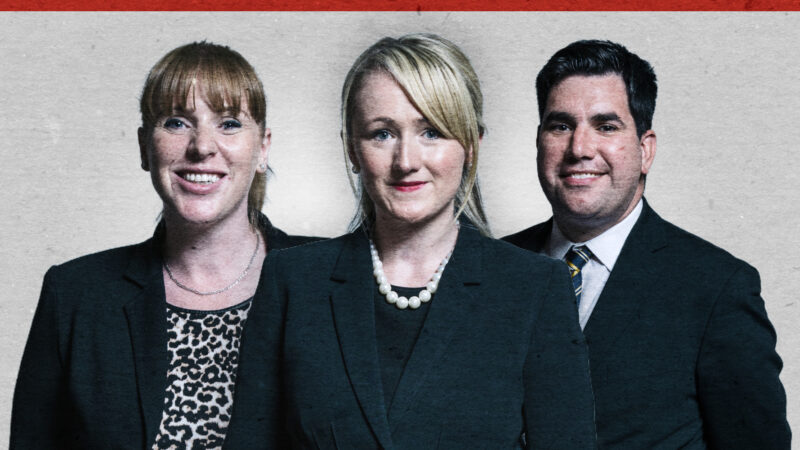
Rebecca Long-Bailey and Richard Burgon have become the latest candidates to secure places on the final ballot paper. After writing to each leadership and deputy leadership hopeful for their views on the fire and rescue service, the Grenfell inquiry, anti-trade union laws, the blockade of the Gaza strip and issues of internal party democracy, the executive council of the Labour-affiliated Fire Brigades Union cast their nominations.
Their endorsement of Long-Bailey was entirely expected. The FBU has been a firmly Corbynite union, and it moved the motion for a ‘Socialist Green New Deal’ at party conference – the policy that included a decarbonisation deadline, as advocated by Labour for a Green New Deal. General secretary Matt Wrack wrote for LabourList at the time about why his union wanted an ambitious net-zero target, with firefighters being at the frontline of the climate crisis. Unlike the GMB, which was sceptical about claims that a ‘just transition’ would ensure energy workers were not left behind, the FBU celebrated the 2030 aim. The GND debate has heavily influenced union nominations in this leadership race.
The FBU’s decision to back Burgon was not entirely predictable, however, and it was a close vote. They have a good relationship with frontrunner Angela Rayner, who spoke at their annual conference in Blackpool last year. This was acknowledged by Wrack yesterday, who described her as “a long-time ally and friend of our union”. But Burgon’s stance on policy issues such as Palestinian rights and open selections helped swing it in his favour, as did the fact that Rayner has already far exceeded the threshold for entering the final stage of the deputy contest.
The BFAWU, Unite and the FBU have now all supported the Long-Bailey/Burgon pairing rather than the Long-Bailey/Rayner ‘joint ticket’. In terms of national organisations, the latter is only officially being pushed by Momentum – and its poll of members saw the Rayner recommendation approved by just 52% of respondents. This has been reflected in the actions of some local Momentum branches, with a number openly backing Burgon, and activists who have phonebanked for Burgon using Momentum resources. It is interesting to note that 44 of Rayner’s 70 local party nominations also went to Keir Starmer, whereas just 14 overlap with Long-Bailey. 100% of Burgon’s nominations also opted for Long-Bailey.
The theory behind the original ticket was that Long-Bailey would give Rayner left credentials, while Rayner would give Long-Bailey breadth of support. It would be a show of unity between the Corbynite left and soft left. But the initial arrangement is being increasingly ignored, particularly as Starmer appears to have successfully pitched himself as the unity candidate with a record of backing left-wing causes. Part of the task for Long-Bailey is proving that her rivals are less left-wing than people realise, which explains the public ownership challenge issued last night. But can policy differences outweigh perceptions of electability, when the devastating 2019 election defeat is so fresh in the minds of Labour members?
Sienna @siennamarla
- Today: CWU leadership candidate nominations
- Friday: UK leaves the EU (11pm)
- Saturday: Party hustings in Bristol
- Sunday: Party hustings in Cardiff




More from LabourList
‘The hope that kills you’: Reflections from the final day in Gorton and Denton
MPs, union leaders and organisations react to ‘bruising’ Gorton and Denton result
A gory night for Labour